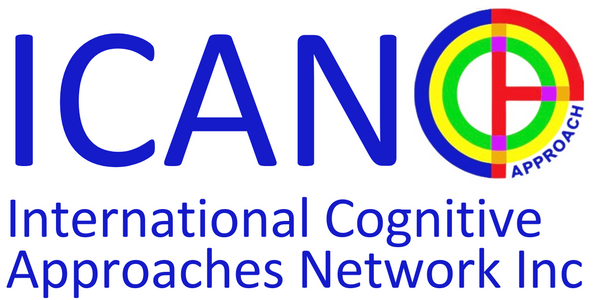
Cerebral Palsy and the CO-OP Approach; from early research to what we know now!
Share
Cerebral Palsy and the CO-OP Approach; from early research to what we know now!
A blog from the ICAN communication working group.

Picture from: Activities for Kids with Cerebral Palsy: Fun Ways to Get Moving (flintrehab.com)
Cerebral Palsy intervention with a new and promising approach, how did that start?
The CO-OP Approach was originally developed for children with Developmental Coordination Disorder (DCD). Beginning in the early 2000s, researchers from all over the world became interested in exploring if CO-OP could be applied with different diagnosis groups and over the lifespan. Pilot studies began in different areas including on CO-OP with children with cerebral palsy and / or their caregivers.
Cerebral palsy is defined as a group of conditions that affect movement and posture (mayoclinic.org). It's caused by damage that occurs to the developing brain, most often before birth. More information on cerebral palsy at mayoclinic.org and canchild.ca.
Debra Cameron, University of Toronto, from 2007 onwards, was interested in if and how children with cerebral palsy could benefit from the CO-OP Approach. Debra’s research results were presented beginning in 2009 at conferences in Canada, Chile and the Caribbean.
And in articles like: Debra Cameron, Tammy Craig, Brydne Edwards, Cheryl Missiuna, Heidi Schwellnus & Helene J. Polatajko (2017) Cognitive Orientation to daily Occupational Performance (CO-OP): A New Approach for Children with Cerebral Palsy, Physical & Occupational Therapy In Pediatrics, 37:2, 183-198, DOI: 10.1080/01942638.2016.1185500
The main outcome of her work was to demonstrate that the CO-OP Approach was feasible for children with cerebral palsy.
What followed?
This research opened the door for more researchers on the CO-OP intervention for children and young people with cerebral palsy. Many articles can be found at PubMed or scholar.google.at.
Some researchers / authors in this theme are: Iona Novak, Jill Zwicker, Hortensia Gimeno, Michelle Jackman and her colleagues from Australia, Tammy Craig, Ann-Marie Öhrvall and her colleagues from Sweden, Neda Ghorbani and her colleagues from Iran and more.
The work of Hortensia Gimeno on young persons with dystonia or dyskinetic CP, a specific type of cerebral palsy taught us not only about the applicability of CO-OP for this group, but also new strategies that can be used such as the personalized strategy “distraction”. An example of Grace showing the effects of her CO-OP intervention is seen at: https://youtu.be/Au6jwjTB1WI?si=6Q9srYBnk4un9IuU
Tammy Craig in Canada started and Michelle Jackman in Australia continued research on the CO-OP Approach and parents of children with Cerebral Palsy. If you are interested in learning more about this topic, then do have a look at:
- Exploring correlations between parent involvement and performance and self-efficacy outcomes in children with cerebral palsy. LINK
This study investigates the correlation between parent involvement and performance and self-efficacy outcomes in children with Cerebral Palsy (CP). Using a 12-session intervention, the research found that higher parent involvement was associated with better performance outcomes. However, more parent involvement was associated with poorer outcomes at follow-up. The findings suggest further investigation into the correlations between parent involvement and outcomes is warranted.
- Michelle Jackman, Iona Novak, Natasha Lannin & Elspeth Froude (2017) Parents’ experience of undertaking an intensive cognitive orientation to daily occupational performance (CO-OP) group for children with cerebral palsy, Disability and Rehabilitation, 39:10, 1018-1024, DOI: 10.1080/09638288.2016.1179350
What do we know in 2023?
Recently an overview on the latest research behind the CO-OP Approach on people with cerebral palsy has broadcast by the OT Potential Podcast episode: The CO-OP Approach and Cerebral Palsy. The podcast is available to listen to for free!
All this supports the strength of the Cognitive Approach to daily Occupational Performance across diagnosis groups.
